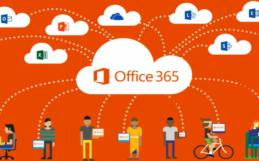What Can Cloud Computing Do For My Business?
Today, many have adopted the flexibility and scalability of the cloud. According to Rightscale, 66% of enterprises already have a cloud team or center of excellence.
However, some are still skeptical about whether the benefits of the cloud will work for them. Without a clear understanding of the technology and its ramifications, properly evaluating return on investment can be difficult.
In this blog, we’ll first define and explain the impact of cloud computing. We’ll then list the significant benefits and a few challenges that every business owner needs to consider when adopting this powerful technology into their operational environment.
What is Cloud Computing?
Cloud computing is ‘the practice of using a network of remote servers hosted on the internet to store, manage and process data, rather than a local server or a personal computer.‘
Nowadays, cloud computing is relatively universal. Platforms such as Gmail, Google Drive, Facebook, and Instagram are cloud-based applications that share personal data across networks.
Organizations and governments are also reliant on cloud computing because of increased data security, scalability, and availability. Cloud computing also brings the added benefits of agility and improved business resilience.
According to a 2021 study by Konica Minolta, nearly half (45%) of SMBs surveyed have gained or upgraded cloud data storage within the last year. It’s become a fact: a cloud infrastructure is essential to running a modern workplace.
The Six Advantages Of Cloud Computing
- Flexibility: Cloud is highly flexible as you only pay for what you use. You can minimize the lead time for new resources, quickly deploy new applications, and add new users with the click of a button. Doing so also means financial flexibility, as the right provider can tailor your plan according to your needs and give you a choice between different cloud Service Level Agreements (SLA).
- Scalability: Cloud computing allows you to scale your resource capacity up or down, depending on your needs. For example, if you have a fiscal year of growth, you can add more storage and computing capacity to better serve your clients.
- Cost-Effectiveness: The cloud drastically reduces the upfront costs needed, meaning you have more to reinvest into your business. It removes the capital expenditure required to buy hardware and software and run on-premise data centers and servers. You can also offload some expenses associated with purchasing, installing, configuring and managing your on-premise infrastructure (e.g. servers).
- Optimized productivity: Cloud providers typically handle ongoing maintenance and perform all software updates and security patches, ensuring that your data is safe. Since the provider can schedule these updates with you, they cause minimal service interruption. You are then free from many of the related IT maintenance burdens, such as testing. By letting go, you can focus on making your business as good as it can be.
- Post-pandemic friendly: After this year of remote work, research shows employees have become accustomedto working from home. If this propensity for flexible work is here to stay, so is cloud computing. Cloud services are available to anyone with an internet connection and are a perfect fit for remote work. Employees can have access from wherever they are, with equal productivity from home, the road or the office. Take cloud printing, for example. Although mobile printing has been around for a long time, it used to be limited. With traditional mobile printing, the mobile and the printing devices had to be on the same network or accessed by a VPN. This is unnecessary with cloud printing. Employees can now send their documents to the cloud and print with authentication when they are in the office. The reverse is also true. If they connect a home printer to the cloud, they can send documents from their smartphone and read the printed copies once they get home.
- Security: Data security is one of the most cited concerns about moving a business to the cloud. Data is the most valuable thing you own, so it’s natural to feel wary about sending it to an external provider. From servers stored under desks to limited in-house security experts, there are many reasons the cloud can be more secure than on-premise. For instance, cloud-based infrastructure is safer from attack because it is ordinarily separate from user workstations. This is because most attacks originate through phishing and other email-related threats. For peace of mind, ensure that you check your cloud provider guarantees the highest security standards. The most popular cloud providers, such as Amazon, Google, and Microsoft, all have their own certifications. Also, check for features such as 24/7 monitoring, business continuity solutions, and automatic security updates. Once you are secure, the possibilities of cloud computing are endless. Applications for employee collaboration, workflow, CRM, ERP, data analytics–the cloud covers everything.
But, of course, it’s not all perfect. Like most things in life, switching to cloud computing comes with its challenges. Luckily, all are solvable.
The Three Challenges Of The Cloud
- One size does not fit all: There are different cloud models available. These include public (delivered by the internet and shared with other organizations), private (solely used by your business) and hybrid (a mixture of both). Make sure to use the right approach for your business. Depending on your individual needs, you may combine all the cloud models with a multi-cloud strategy (different clouds for different tasks).
- Not everyone likes change: The physical shift from on-premise computing to cloud computing might be seamless and easy, but obtaining cultural buy-in may not be. It may take a bit of convincing to bring some around. It’s only natural that people are wary of technological change (especially if they fear data privacy breaches). For this, you will need to implement a suitable change strategy that brings everyone on board.
- You will need help: Integrating the cloud into an existing infrastructure is not something you can do independently. You need to plan and implement the move professionally. It is always best to use an external partner who can help set up your perfect implementation strategy.
Making The Cloud Work For You
Although cloud migration can present a business with many benefits, it can often feel like a daunting task because of the financial, technological, and cultural implications.
That’s why a trusted partner who understands your environmental complexities and has years of cloud experience can help you move faster, more efficiently, and securely. Our experts will assess your current needs and tailor a cloud strategy that meets your unique requirements.





